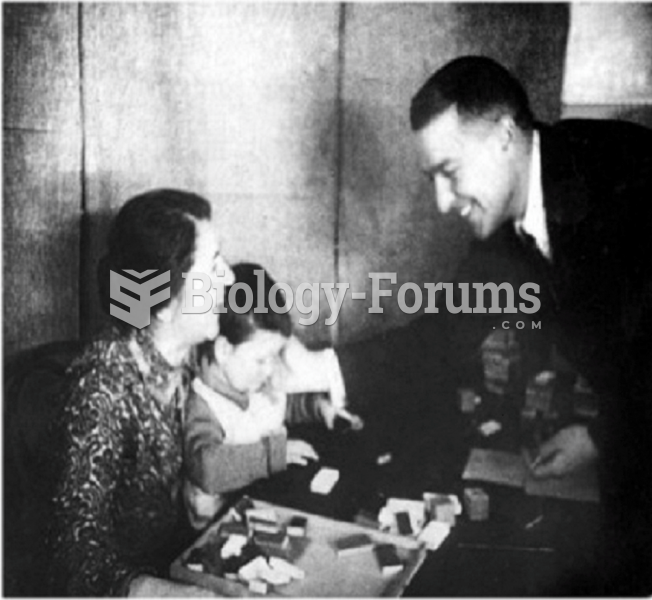|
|
|
The senior population grows every year. Seniors older than 65 years of age now comprise more than 13% of the total population. However, women outlive men. In the 85-and-over age group, there are only 45 men to every 100 women.
There are actually 60 minerals, 16 vitamins, 12 essential amino acids, and three essential fatty acids that your body needs every day.
Although the Roman numeral for the number 4 has always been taught to have been "IV," according to historians, the ancient Romans probably used "IIII" most of the time. This is partially backed up by the fact that early grandfather clocks displayed IIII for the number 4 instead of IV. Early clockmakers apparently thought that the IIII balanced out the VIII (used for the number 8) on the clock face and that it just looked better.
Pope Sylvester II tried to introduce Arabic numbers into Europe between the years 999 and 1003, but their use did not catch on for a few more centuries, and Roman numerals continued to be the primary number system.
When blood is exposed to air, it clots. Heparin allows the blood to come in direct contact with air without clotting.
 Audiometry exam being administered to a young child who is wearing the ear phones through which soun
Audiometry exam being administered to a young child who is wearing the ear phones through which soun
 Does this child have legs of different lengths or scoliosis? Look at the level of the iliac crests a
Does this child have legs of different lengths or scoliosis? Look at the level of the iliac crests a





